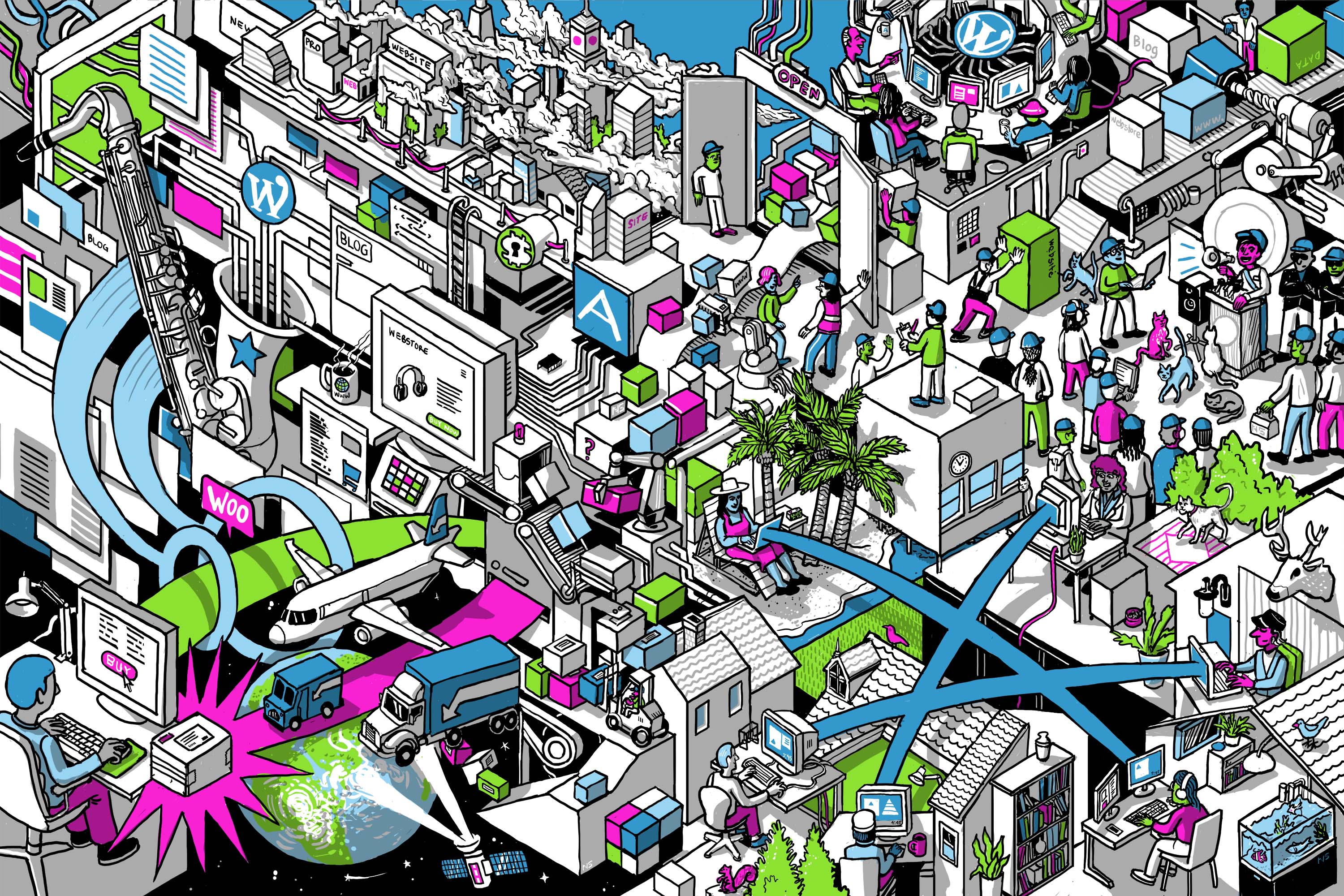If you’re interested in writing a post for TechCrunch or TechCrunch+, please join the Twitter Space I’m hosting today at 3 p.m. PDT/6 p.m. EDT.
I’ll explain our editorial guidelines, the editing process and most importantly, the criteria we use to determine whether a post creates value for readers.
This Space is not a forum for pitching an article — if you’d like to submit your post for consideration, please email guestcolumns@techcrunch.com.
I’m looking forward to talking to you in person; please bring your questions!
Have a question about what we look for in guest contributions? Ask @YourProtagonist tomorrow, October 19 at 3 pm PT/ 6 pm ET during our Q&A (but please save your pitches to send over via email!) https://t.co/CRe56i5iKM
— TechCrunch (@TechCrunch) October 18, 2021
In light of today’s chat, I’d thought it’d be useful to explain why we ran this guest post by Travelpayouts head Ivan Baidin touting the productivity gains created by introducing a GSSD program, aka “Getting S*** Done Day.”
One day every other week, Travelpayouts “employees define clear-cut goals and receive specific, usually non-trivial, tasks with little to no communication involved,” writes Baidin.
Getting S*** Done Day has allowed the team to address “sidelined” projects that may have seemed like small potatoes: rebuilding lifecycle emails, improving analytics and optimizing working hours.
Completing each of these “eternally postponed” tasks created incremental gains, says Baidin. “That is something we value a lot.”
This article contains strategic, actionable advice for implementing a GSDD program alongside the lessons the team learned as they identified problems with the experiment. It’s a classic TechCrunch+ “how-to.”
Thanks very much for reading!
Walter Thompson
Senior Editor, TechCrunch+
@yourprotagonist
How our startup boosted productivity with ‘get s*** done’ day
The Automattic TC-1

Our latest long-form look at a notable tech company examines Automattic, “the leading commercial complement to the open source WordPress publishing platform.”
At 16 years old, the company is growing into a major media player: Its purchase of Tumblr expanded its reach into social media, and WooCommerce, its open-source e-commerce plugin for WordPress users, integrates with POS systems in the real world.
Broken into four parts, this series examines Automattic from multiple angles:
Part 1: How doing everything wrong turned Automattic into a multibillion dollar media powerhouse (origin story)
Part 2: There’s nothing Automattic about balancing commercial growth with an open source developer community (open source development)
Part 3: Can social and e-commerce transform the future of the open web? (acquisitions and future strategy)
Part 4: The future of remote work is text (remote work culture)
What we can learn from China’s mobile gaming economy

With budgets that go into the millions, video games are no small business. And the fast-growing mobile gaming sector is shaping up to be an even more lucrative market.
That’s especially true in the massive mobile game market in China, but the country’s strict regulatory requirements have given pause to international game developers looking to enter.
But there’s a lot to learn from how Chinese publishers have navigated the regulatory environment, writes Jeff Sue, GM of Americas at mobile ad platform Mintegral.
Sue dives deep into the Chinese mobile gaming sector in a TechCrunch+ guest post, outlining how global publishers can successfully advertise and capture market share in China by pursuing local partnerships, focusing on smaller, emerging Chinese cities and studying emerging social media trends.
Deep tech startups in need of funding should consider federal grants

So far, 2021 seems like a golden era for raising startup funding, but deep tech startups still face challenges, as few VCs have the patience or risk appetite to experiment — or wait for their investment to show returns.
However, deep tech startups have one source of capital that can also impart a fair amount of prestige, according to CoCoPie co-founder and CTO, Xipeng Shen: Federal grants.
“Being selected out of thousands of U.S. applicants signals that your innovation has strong technical and commercial merit and the potential for broad U.S. economic impact,” he writes.
In a detailed post, Shen outlines the process they followed for acceptance into the Small Business Innovation Research/Small Business Technology Transfer (SBIR/STTR) program, noting that his company is using the funding tactically “to convert our technology into a minimum viable product.”
Deep tech startups in need of funding should consider federal grants
The hyperactive open banking market of Latin America: How the region is being APIfied

Latin America is very quickly becoming a hotbed for fintech startups, and VCs, savvy or not, are rushing to invest.
There are a plethora of factors driving this growth, but one important focus of tech seems to be at the heart of the innovation here: APIs built around open banking.
In a traditionally restrictive banking environment, startups like Nubank and Rebaja Tus Cuentas are revolutionizing banking and financial services, and their efforts can be compounded by the use of open banking APIs, according to Ximena Aleman, co-founder and chief business development officer at Prometeo.
“An open API ecosystem, in which third-party service providers access consumer data from financial institutions, means financial services will be optimized to lower costs and time spent on transactions and improve user experience,” she writes in a TechCrunch+ guest post.
The hyperactive open banking market of Latin America: How the region is being APIfied
Rad Power Bikes founder Mike Radenbaugh on fueling the e-bike revolution

E-bikes just exploded in popularity during the COVID-19 pandemic, and no U.S. company in the sector has raised a bigger funding round than Rad Power Bikes’ $150 million raise this year.
Pockets full of cash, the direct-to-consumer company is looking to expand its international presence and scale aggressively while keeping its focus on the one thing that has helped it grow so far: “Being user-friendly,” says founder Mike Radenbaugh.
In a free-wheeling interview with Rebecca Bellan, Radenbaugh talked about the e-bike revolution, diversifying the supply chain, and if the boom in e-bike sales will last.
Rad Power Bikes founder Mike Radenbaugh on fueling the e-bike revolution
China’s changing regulatory environment isn’t stopping a venture capital frenzy

The entire startup ecosystem gets downright jittery when China brings any new regulation into force — their livelihoods depend on it, after all.
But it seems there’s no slowing the thrust of VC investment in China. As Alex Wilhelm and Anna Heim found out this morning, the third quarter of 2021 has by far been the best ever for Chinese startups.
“Will future regulatory activity by the Chinese government manage to impact startup investing in the future? We do not know. But investors are laying bets like they do, which is worth noting.”
China’s changing regulatory environment isn’t stopping a venture capital frenzy































Comment